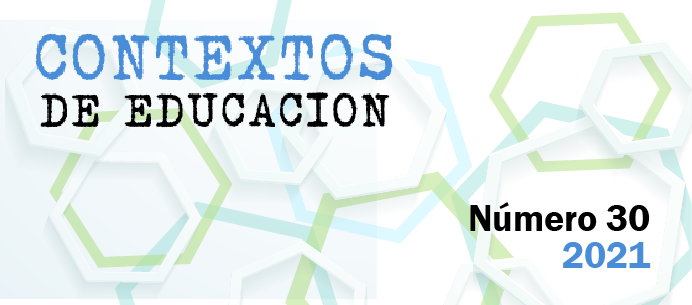Teaching metaphors on educational management in a public school
Keywords:
educational organization, metaphors, institutional management, pedagogical management, directive managementAbstract
The subject of study is framed in the organizational culture and the use of metaphors. The objective of the research was to analyze the metaphors used by teachers about the dimensions of educational management in a School Education Institution in Arequipa. The information was collected through the application of a semi-structured interview directed to teachers; which showed that metaphor plays a fundamental role in the construction of social reality and whose meanings go beyond what literal language can offer us; that is to say, it is an unattainable mode of interpretation for reason. In the institution studied, no member is alien to the use of metaphors. For this reason, the findings of the metaphors analyzed show that the organization is managed as an educational community where the sense of belonging and human relationships, a system of shared values and a sense of belonging prevail notoriously.
References
Alarcón, P.; Díaz, C.; Tagle, T.; Ramos, L. y Quintana, M. (2015). Metáforas para profesor y estudiante de pedagogía, en un grupo de estudiantes de pedagogía chilenos. Actualidades Investigativas en Educación, 14(2), 512-543.
Allison, D. J. (1996). Problem finding, classification and interpretation: In search of a theory of administrative problem processing. In International handbook of educational leadership and administration (pp. 477-549). Springer, Dordrecht. https://doi.org/10.1007/978-94-009-1573-2_17
Dewey, J. (2015). Las fuentes de la ciencia de la educacio?n. New York, Estados Unidos: Lapislatzuli.
Díaz, C. (4 de abril de 2008). Las metáforas sobre la organización escolar. Blog de la Maestría y Doctorado en Educación. Recuperado de http://blog.pucp.edu.pe/blog/maestriaeducacion /2008/04/04/las-metaforas- sobre-la-organizacion-escolar/
Estepa, P. M.; Gallego-Domínguez, C. y García, C. M. (2018). Mi escuela es como... análisis de metáforas del profesorado principiante. Revista Brasileira de Educação, 23. doi: https://dx.doi.org/10.1590/s1413-24782018230068
Fajardo Uribe, L. A. (2006). La metáfora como proceso cognitivo. Forma y Función (19), 47-56. Recuperado de https://www.redalyc.org/articulo.oa?id=219/21901903
González, M. T. G. (1987). La escuela como organización: algunas imágenes metafóricas. Anales de Pedagogía (5), 27-44. Recuperado de https://revistas.um.es/anal espedagogia/article/view/288101/209321
Herna?ndez Sampieri, R., Ferna?ndez Collado, C., y Baptista Lucio, P. (2014). Metodologi?a de la Investigacio?n (6 ed.). Me?xico, México: McGRAW-HILL / Interamericana Editores, S.A. de C.V.
Lakoff, G. y Johnson, M. (1980). Metaphors we live by. Chicago, USA: University of Chicago Press.
Lira, N. L. y González, V. S. (2015). La gestión institucional en un centro de educación superior mexicano en el proceso de construcción de confianza desde los enfoques de atención al sujeto. Revista Latinoamericana de Estudios Educativos (México), 45(1), 109-139.
Miranda Beltrán, S. (2016). La gestión directiva: un concepto construido desde las comprensiones de los directivos docentes de las escuelas públicas bogotanas. RIDE. Revista Iberoamericana para la Investigación y el Desarrollo Educativo, 7(13), 562-589. Recuperado de http://www.scielo.org.mx/scielo.php?script=sci_arttext& pid=S2007-746720160002005 62&ln g=es&tlng=es.
Morales, B. C. (2018). Teoría de la metáfora conceptual y teoría de la metáfora deliberada: ¿propuestas complementarias?. Estudios de Lingüística Aplicada, (68), 165-198. Doi: https://doi.org/10.22201/enallt.01852647p.2018.68.719.
Neuman, A. y Guterman, O. (2017). Metaphors and education: comparison of metaphors for education among parents of children in school and home education. Pedagogy, Culture & So- ciety. 26 (3), 435.447. Doi: 10.1080/14681366.2017.1414868.
Nubiola, J. (2000). El valor cognitivo de las metáforas. Recuperado de: https://dadun.unav.edu/bitstream/10171/6224/1/103_5.pdf
Rojas de Escalona, B. (2005). El análisis de las metáforas: una estrategia para la comprensión y el cambio en el contexto organizacional. SAPIENS, 6(2), 53-62. Recuperado de http://ve.scielo.org/scielo.php?script=sci_arttext&pid=S1317-58152005000200005&lng=es&t%20lng=es.
Sackmann, S. (1989). The Role of Metaphors in Organization Transformation. Human Relations, 42(6), 463–485. https://doi.org/10.1177/001872678904200601.
Sandoval, L. Y. (2006). El ser y el hacer de la organización educativa. Educación y educadores, 9(1), 33-53.
Simsek, H. (1997). Metaphorical images of an organization: The power of symbolic constructs in reading
change in higher education organizations. Higher Education, 33(3), 283-307.
Tyler, W. (1991). Organización escolar. Una perspectiva sociológica. Madrid, España: Morata.
Úcar, X. (2018). Metáforas de la intervención socioeducativa: implicaciones pedagógicas para la práctica. Revista Española de Pedagogía, 76(270), 209- 224. Doi: https://doi.org/10.22550/REP76-2-2018-01
Vázquez, R. (2007). Las Metáforas: Una Vía posible para comprender y explicar las Organizaciones escolares y la dirección de centros. Revista Electrónica Iberoamericana sobre Calidad, Eficacia y Cambio en Educación, 5(3), 137-151. Recuperado de http://www.rinace.net/arts/vol5num3/art14.pdf.
Downloads
Published
Issue
Section
License
Política propuesta para revistas que ofrecen acceso abierto
Aquellos autores/as que tengan publicaciones con esta revista, aceptan los términos siguientes:- Los autores/as conservarán sus derechos de autor y garantizarán a la revista el derecho de primera publicación de su obra, el cuál estará simultáneamente sujeto a la Licencia de reconocimiento de Creative Commons CC BY-NC-SA 2.5 AR que permite a terceros compartir la obra siempre que se indique su autor y su primera publicación esta revista.
- Los autores/as podrán adoptar otros acuerdos de licencia no exclusiva de distribución de la versión de la obra publicada (p. ej.: depositarla en un archivo telemático institucional o publicarla en un volumen monográfico) siempre que se indique la publicación inicial en esta revista.
- Se permite y recomienda a los autores/as difundir su obra a través de Internet (p. ej.: en archivos telemáticos institucionales o en su página web) antes y durante el proceso de envío, lo cual puede producir intercambios interesantes y aumentar las citas de la obra publicada. (Véase El efecto del acceso abierto).

